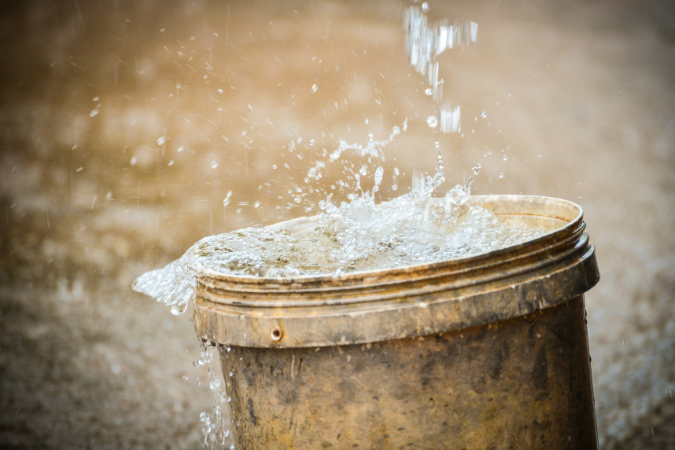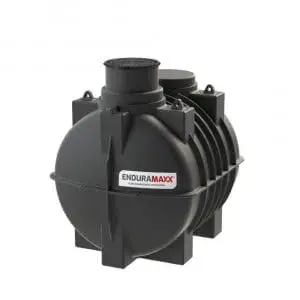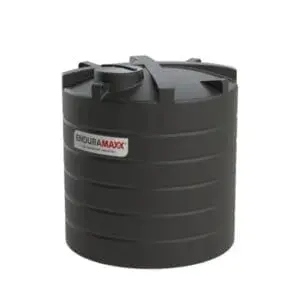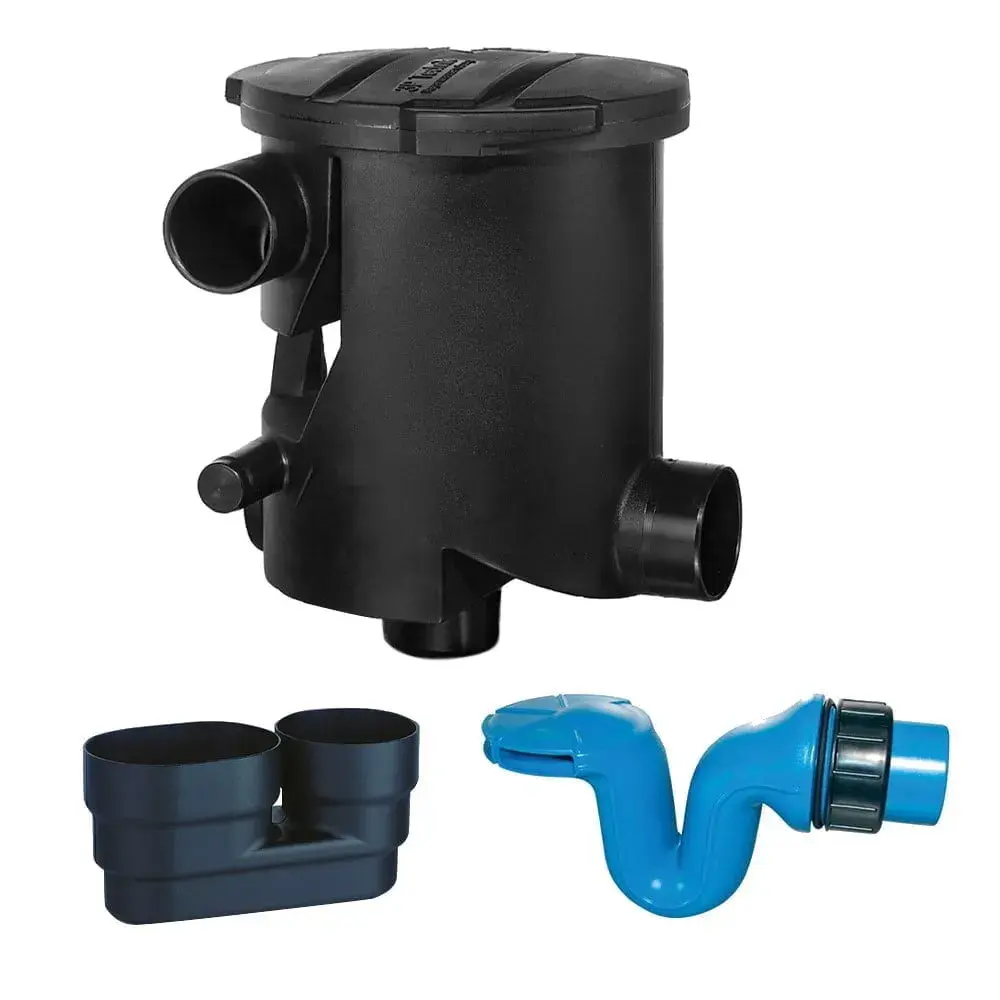
It is often said that the most important natural resources for farming are water, air and soil. Quite rightly, much attention has focussed on soil, being a farmer’s most valuable natural resource. However, the challenge of mains water shortages for farms looms on the horizon and farms need to adapt and take action to mitigate against future mains water scarcity.
Rainwater is a natural resource that costs nothing but holds immense value, and one of the most promising and eco-conscious methods for farms to reduce their environmental impact is harvesting rainwater. Why rely on expensive and chemically treated mains water when nature provides a bountiful source of fresh, untreated water from the skies?”
Rainwater harvesting brings a multitude of benefits to farmers:
Reduce Carbon Footprint
By harvesting rainwater, farms can reduce their reliance on chemically treated mains water. This indirectly contributes to a lower carbon footprint, as the energy intensive water treatment process generates significant carbon emissions. Rainwater harvesting reduces both the treatment process’s environmental impact as well as the emissions generated.
Reduce Water Bills
Rainwater harvesting systems are a one-time investment that can yield long-term financial benefits, as farms will save money on water bills and associated sewage costs that are linked to mains water usage.
Reduce The Use Of Additives And Conditioners
Naturally occurring rainwater is soft, has a neutral pH and lacks the mineral content typically found in mains water. Using soft rainwater in sprayers will help to prevent nozzles from clogging up and the need for chemical softening additives and conditioners. This is particularly significant as hard water can diminish the efficacy of certain herbicides, like Glyphosate.
Reduce The Strain On Mains Water
Rainwater harvesting alleviates the pressure on mains water sources. By using rainwater instead of mains water, farms can decrease the strain on local water sources and indirectly reduce their own carbon footprint, contributing to the overall sustainability of farming operations, whilst helping to protect the environment for future generations.
Reduce Reliance On Mains Water
Treated rainwater serves as an excellent source of drinking water for livestock. This ensures that even during dry spells, livestock have access to a reliable source of water, promoting animal welfare.
Reduce Localised Flooding
Capturing rainwater will also help to keep farm yards cleaner and less muddy. Moreover, they ease the strain on stormwater systems during heavy downpours, reducing the risk of localised flooding.
Enhance Environmental Footprint
Rainwater harvesting showcases a farmer’s commitment to sustainable practices, it is more than just eco-friendly; its smart, efficient and beneficial to your farm, machinery and livestock and, we expect that in the future, regulatory compliance. By visibly demonstrating a commitment to sustainability farms will enhance their reputation and marketability.
What’s Next?
If you are keen to join many farm businesses and make a positive impact on the environment while reaping the practical benefits of rainwater harvesting you’re on the right path. Transitioning to rainwater harvesting not only benefits your farm but also contributes to a more sustainable and resilient agricultural sector.
Enduramaxx offers a range of tanks in various shapes and sizes to suit your farm’s specific needs. To learn more about how rainwater harvesting can benefit your farm, please contact Enduramaxx directly 01778 309847 or get in touch with your farm buying group or agricultural dealer. Alternatively, Enduramaxx can connect you with an approved installer in your area.
Article first appeared in Direct Driller Magazine, Issue 23, October 2023 (page 94/95)
Image Source: Canva
Posts By Topics
- Blog (303)
- Chemical Storage Tanks (118)
- Chemical Dosing Tanks (114)
- Chemical Tanks (114)
- Water Tanks (58)
- Rainwater Harvesting Tanks (43)
- Vertical Rainwater Tanks (31)
- Vertical Storage Tanks (31)
- Cone Bottom Tanks (19)
- Conical Cone Tanks (18)
- Rainwater Harvesting (17)
- Water Bowsers (15)
- Horizontal Tanks (14)
- Potable Water Tanks (13)
- Farming (9)
- Case Studies (8)
- Industrial Storage Tanks (7)
- Liquid Fertilser Storage Tanks (6)
- WRAS Approved Potable Tanks (6)
- Wine and Beer Production (6)
- Horizontal Transport Tanks (5)
- Microbrewery (5)
- Rainwater (5)
- Category 5 Break Tanks (4)
- Cider Production (4)
- Mixer Tanks (4)
- Molasses Tanks (4)
- Polyethylene tanks (4)
- Rainwater Filter Kits (4)
- SPECIALIST & BESPOKE TANKS (4)
- Bunded Tanks (3)
- Slimline Tanks (3)
- WRAS Approved (3)
- Clarification Tanks (2)
- Crosslinked Polymer Tanks (XLPE) (2)
- Fertiliser Tanks (2)
- Sump Tanks (2)
- Tank Installation (2)
- Water Butt (2)
- underground water tanks (2)
- ACCESSORIES & FITTINGS (1)
- ATV & UTV SPRAYING UNITS (1)
- Above Ground Effluent Tanks (1)
- Bespoke Tank Frames (1)
- Category 5 Turret (1)
- Caustic Soda Tanks (1)
- Closed Top Bunded Tanks (1)
- Craft beer (1)
- Effluent Tanks (1)
- Enduramaxx (1)
- Ferric Chloride Tanks (1)
- Fire Safety Regulations (1)
- Fire Sprinkler Water Storage Tanks (1)
- Industrial Water Tank (1)
- Open Top Bunded Tanks (1)
- Open Top Cone Tanks (1)
- Open Top Vertical Tanks (1)
- Polyethylene Potable Water Tanks (1)
- Polyvinylidene Fluoride (PVDF) Tanks (1)
- Polyvinylidene Fluoride Tanks (PVDF) (1)
- Pressure Washers (1)
- Pro Series Spot Sprayers (1)
- RWH (1)
- Sodium Hydroxide Storage Tanks (1)
- Sprayer Fill-up Tanks (1)
- Uncategorised (1)
- liquid fertiliser tank (1)
Sign up to the newsletter
enduramaxx.marketing
Related Posts
Liquid Fertiliser Storage Tanks: A Guide To Customer Needs
What are the most important considerations your customers have when purchasing a liquid fertiliser...
Farm water planning - what you need to know | Enduramaxx
What you need to know about farm water planning, water is one of the most crucial elements of any...
Not All Farms Have Fields, What Are Tank Farms?
Not all farms have fields… what are tank farms – Tank farms are a collection of tanks designed to...
Related Products
From £1,080.00 inc. VAT
£900.00 exc. VAT
From £1,344.00 inc. VAT
£1,120.00 exc. VAT
From £768.00 inc. VAT
£640.00 exc. VAT
£480.00 inc. VAT
£400.00 exc. VAT






